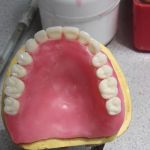How to Prevent Gum Recession and Keep Gums Healthy
- 1. Understanding Gum Recession
- 2. Causes of Gum Recession
- 3. Effective Strategies to Prevent Gum Recession
- 4. The Importance of Regular Dental Care
- 5. When to Seek Professional Help
1. Understanding Gum Recession
Gum recession occurs when the gum tissue that surrounds the teeth wears away or pulls back, exposing more of the tooth or even the tooth’s root. It is a common dental issue that can lead to sensitivity, pain, and increased risk of tooth decay and gum disease. Understanding the causes of gum recession and taking steps to prevent it are essential for maintaining healthy gums and teeth.
Gum recession doesn’t happen overnight. It’s a gradual process that can be influenced by a variety of factors, including oral hygiene habits, genetics, and lifestyle choices. By being proactive, you can prevent gum recession from worsening and ensure that your gums remain healthy.
2. Causes of Gum Recession
There are several reasons why gums may recede. Some of the most common causes include:
- Poor Oral Hygiene: Inadequate brushing and flossing can lead to plaque buildup, which can irritate the gums and cause them to recede.
- Genetics: Some people may be genetically predisposed to gum disease or have naturally thin or weak gum tissue, making them more vulnerable to recession.
- Gum Disease: Conditions like gingivitis or periodontitis are the leading causes of gum recession, as they damage the tissue around the teeth.
- Teeth Grinding (Bruxism): Consistent grinding of teeth or clenching your jaw can put excessive force on the gums, leading to recession.
- Misaligned Teeth or Poorly Fitting Dentures: Crooked teeth or dentures that don’t fit properly can lead to uneven pressure on the gums, increasing the likelihood of recession.
By identifying these causes, you can take targeted steps to reduce your risk of gum recession and keep your gums healthy.
3. Effective Strategies to Prevent Gum Recession
Preventing gum recession is possible with the right strategies and habits. Here are some effective ways to protect your gums:
- Maintain Good Oral Hygiene: Brush your teeth at least twice a day using a soft-bristled toothbrush, and floss daily to remove plaque and prevent gum disease.
- Use the Right Toothbrush: A soft-bristled toothbrush can prevent damage to the gums. Avoid brushing too aggressively, as this can wear down the gum tissue.
- Avoid Tobacco Products: Smoking or using other tobacco products can contribute to gum disease and increase the risk of gum recession.
- Manage Stress: Stress can contribute to teeth grinding, which may lead to gum recession. Managing stress through relaxation techniques or seeking professional help can reduce this risk.
- Eat a Balanced Diet: A healthy diet rich in vitamins and minerals can support gum health. Make sure to include plenty of vitamin C, which is crucial for gum tissue repair.
Incorporating these strategies into your daily routine will help prevent gum recession and promote overall gum health.
4. The Importance of Regular Dental Care
Regular dental checkups are essential for keeping your gums healthy and preventing gum recession. During these visits, your dentist can detect early signs of gum disease, plaque buildup, or other issues that could lead to gum recession. Professional cleanings are crucial for removing plaque and tartar that regular brushing cannot eliminate.
Additionally, your dentist can offer personalized advice on how to improve your oral care routine to protect your gums and teeth. Early intervention is key to preventing gum recession and other dental problems.
5. When to Seek Professional Help
If you notice signs of gum recession, such as tooth sensitivity or a visible change in the position of your gums, it’s important to seek professional help promptly. Your dentist can assess the severity of the recession and recommend appropriate treatment, such as scaling and root planing or gum grafting, to restore gum health.
Don’t wait until the condition worsens. Early treatment can prevent further gum damage and protect your overall oral health.
For more information or to schedule a consultation, visit Dentistry Toothtruth.







 Dorfman Orthodontic Group - Bensalem5.0 (199 review)
Dorfman Orthodontic Group - Bensalem5.0 (199 review) Dental Solutions of Roxborough4.0 (219 review)
Dental Solutions of Roxborough4.0 (219 review) Suburban Dental Medicine4.0 (31 review)
Suburban Dental Medicine4.0 (31 review) Smiles Divine Dental4.0 (25 review)
Smiles Divine Dental4.0 (25 review) Icon Dental4.0 (48 review)
Icon Dental4.0 (48 review) Affordable Dentures & Implants4.0 (443 review)
Affordable Dentures & Implants4.0 (443 review) The Importance of Oral Health Education During Pregnancy for a Healthy Pregnancy
The Importance of Oral Health Education During Pregnancy for a Healthy Pregnancy Best Tips for Brushing Your Teeth Properly for Healthy Gums: Essential Techniques for Oral Health
Best Tips for Brushing Your Teeth Properly for Healthy Gums: Essential Techniques for Oral Health Why Skipping Dental Checkups Can Lead to Bigger Oral Health Problems
Why Skipping Dental Checkups Can Lead to Bigger Oral Health Problems Advantages of Porcelain Dental Restorations
Advantages of Porcelain Dental Restorations How Can Diabetes Cause Tooth and Gum Problems? Preventing and Managing Oral Health Issues
How Can Diabetes Cause Tooth and Gum Problems? Preventing and Managing Oral Health Issues Healthy Habits for Promoting Good Oral Health and Hygiene: Tips for a Healthy Smile
Healthy Habits for Promoting Good Oral Health and Hygiene: Tips for a Healthy Smile